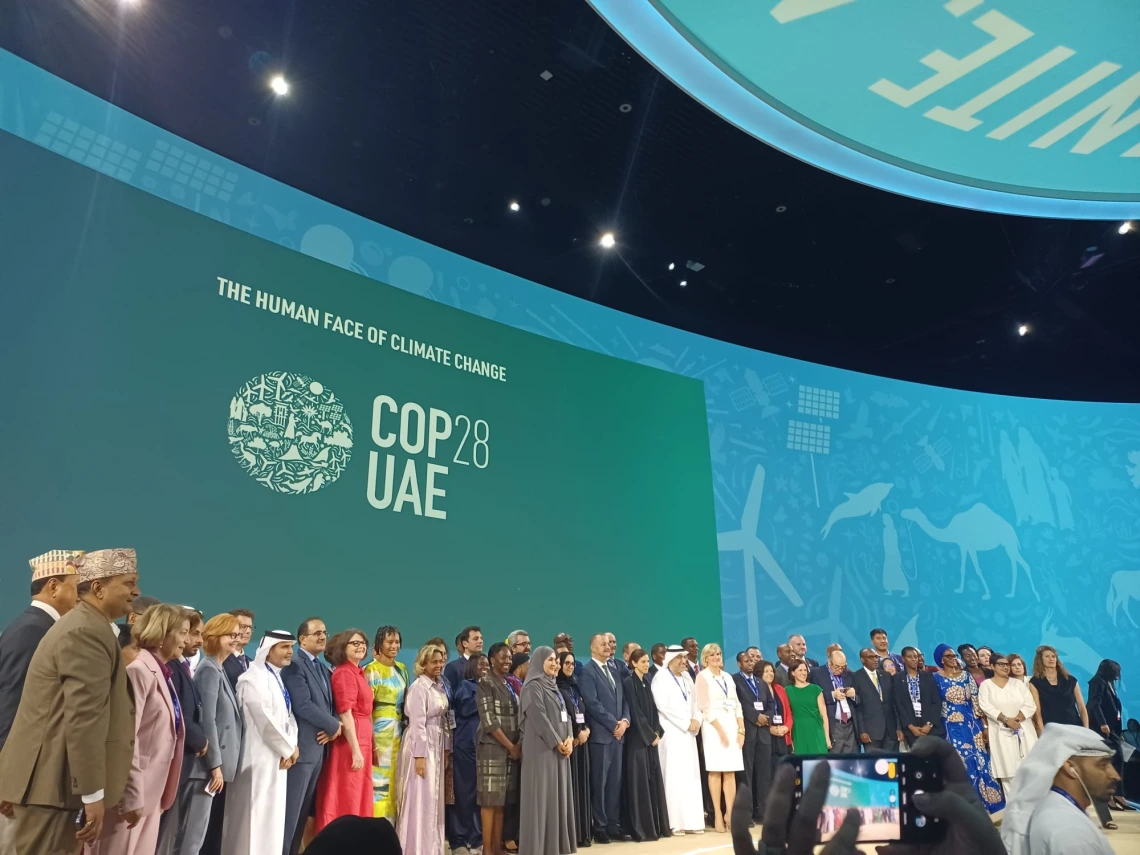UArizona researchers host panel after attending world’s largest climate conference in Dubai
The multidisciplinary cohort will highlight major takeaways from COP28 during February 1 event at ENR2

Tucson, AZ – Among the 100,000+ attendees at the 28th annual United Nations Climate Change conference (COP28), select students, faculty and staff from the University of Arizona networked, presented and showcased the incredible advancements coming from their research and innovation.
The delegation, organized by the Arizona Initiative for Resilience and International Development (AIRID) and the Center for Climate Adaptation Science and Solutions (CCASS), was a multidisciplinary collective of experts representing a dozen UArizona units, departments and colleges. COP28 attracts scientists, entrepreneurs and policymakers of the highest level from around the globe, so these Wildcats were right at home in Dubai.
Now, AIRID and CCASS have partnered to host a panel of their own on campus. The upcoming discussion will provide the opportunity for several members of the UArizona delegation to share their major takeaways from the COP28 experience.
Michael Kotutwa Johnson, Indigenous resilience specialist, discussed the importance of respecting Indigenous values and the relationship with our environment in two different COP28 presentations in collaboration with the Global Resilience Partnership’s Resilience Hub, the world's leading food and agriculture organizations and The Rockefeller Foundation. He noticed policies favoring quantity and efficiency continue to dominate the food and agricultural landscape globally.
“I hope to keep pushing the idea that we focus more on the quality of the food being produced in the coming year,” said Johnson.
New this year at the international climate conference was the interconnection between climate change and health, with an entire day dedicated to public health. Presentations described how climate change has led to severe food, water and energy insecurity, increasing acute vector-borne and waterborne illnesses as well as chronic illnesses, such as cancer. It could be overwhelming, but some attendees highlighted current successes or future solutions to these societal challenges.
Mona Arora, assistant research professor in the Mel & Enid Zuckerman College of Public Health, noticed communities taking climate action and ensuring equitable outcomes.
“As a public health professional, I found hope in the organized efforts of youth, Indigenous and women advocates from around the world to protect their communities,” she said. “We need to take a systems-thinking approach and work across sectors to address the threats to ecosystem, human and animal health. Climate action cannot occur without health at the table.”
Insights like these will be discussed at the Thursday, Feb. 1 event at ENR2 hosted by AIRID and CCASS. Kathy Jacobs and Greg Collins will lead the panel discussion scheduled for 1:00pm – 2:30pm MST. Those interested are encouraged to RSVP here. A virtual option will be available as well.

